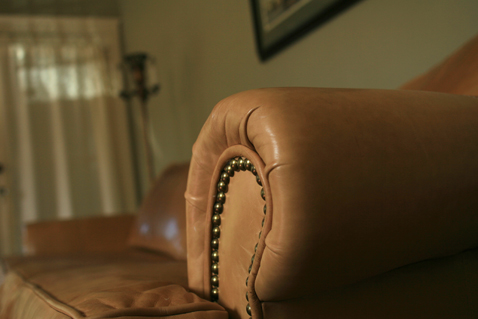Daydream
/It feels almost ridiculous to have such a thought. Impossible, really. My daughter isn’t going to be anything. That train has passed. It steamed and whistled and methodically toiled for almost thirty-nine weeks and then, promptly, fell off a cliff. I understand there is no future for her. The potential for choosing ice cream and friends and hobbies and a career are all out of reach for my darling M.
And yet.
Here I am, imagining her doing something with her live self. Something very particular. Something I know almost nothing about, a pursuit I have always found rather boring. And of course, what I imagine her doing could be entirely untrue, a figment of my imagination, a cruel and beautiful mind trick that connects me to her and her to me. It took me nearly seven months of thinking about it until I even told my partner.
I have something to tell you, I told her.
It’s kind of ridiculous.
No, seriously, it’s pretty crazy.
Well, I keep thinking Margot was going to be a volleyball player.
Because of her hands.
***
I unswaddled her as gently as I could, as any parent would have, protecting her head, giving careful attentiveness to each limb, making sure all of my movements were soft against her body. She appeared slowly before me, from head to toe, revealing herself in stages as I unwrapped the blanket round and round her.
Neck, shoulders, chest, arms and elbows. Each was in perfect harmony with the other.
Her hands were folded neatly together over her belly, her left hand wrapped around her right wrist. There was a solemness about the way they were together, a sacred reverence for the tragedy that befell her. They were the first part of her that took me off guard as I unwrapped her. Her hands were simply huge, almost as long as her forearms, too big for her body. Her fingers were long and thick, and seemed to run on forever. Her palms were white and deep, great pools of soft skin and little creases. Folded together, they almost covered her entire belly and chest.
Those hands make me ache for her future.
***
We were recently at the beach, my first daughter and I, on the swings near the boardwalk cafe. I pushed her from behind, counting with each push, tickling her each time she came back towards me. Kids played all around us, screaming and running, playing hide and go seek. Teenagers walked in front of us, down the wooden path towards the low tide. Behind us was a cafe full of families, eating and conversing on the sand. It was much too warm for January and everyone’s mood seemed in tune with the weather.
It wasn’t until maybe the twentieth push that I noticed them, across the sidewalk, less than a hundred steps from the swings. The University of Southern California women’s volleyball team.
There were more than a dozen of them practicing with one another, bumping, setting and spiking white volleyballs around the sand. They were taller than most women, and athletic, with big enough hands to palm a volleyball, and they moved around the sand so gracefully, as if their feet and the sand had a made a deal with one another.
For a good long minute, I forgot about counting, forgot about the kids around me, the conversations at the cafe, the charming weather. I secretly imagined myself in my late fourties, the father of a University student.
I looked for her, my M.
Tall like her father, blue eyes like her mother, great big hands.
Is there something about your child's future that you think about, whether it's about their personality, or their hobbies, career or anything else? Did you have any leanings or notions while your baby was in utero? Or after you saw them for the first time?




